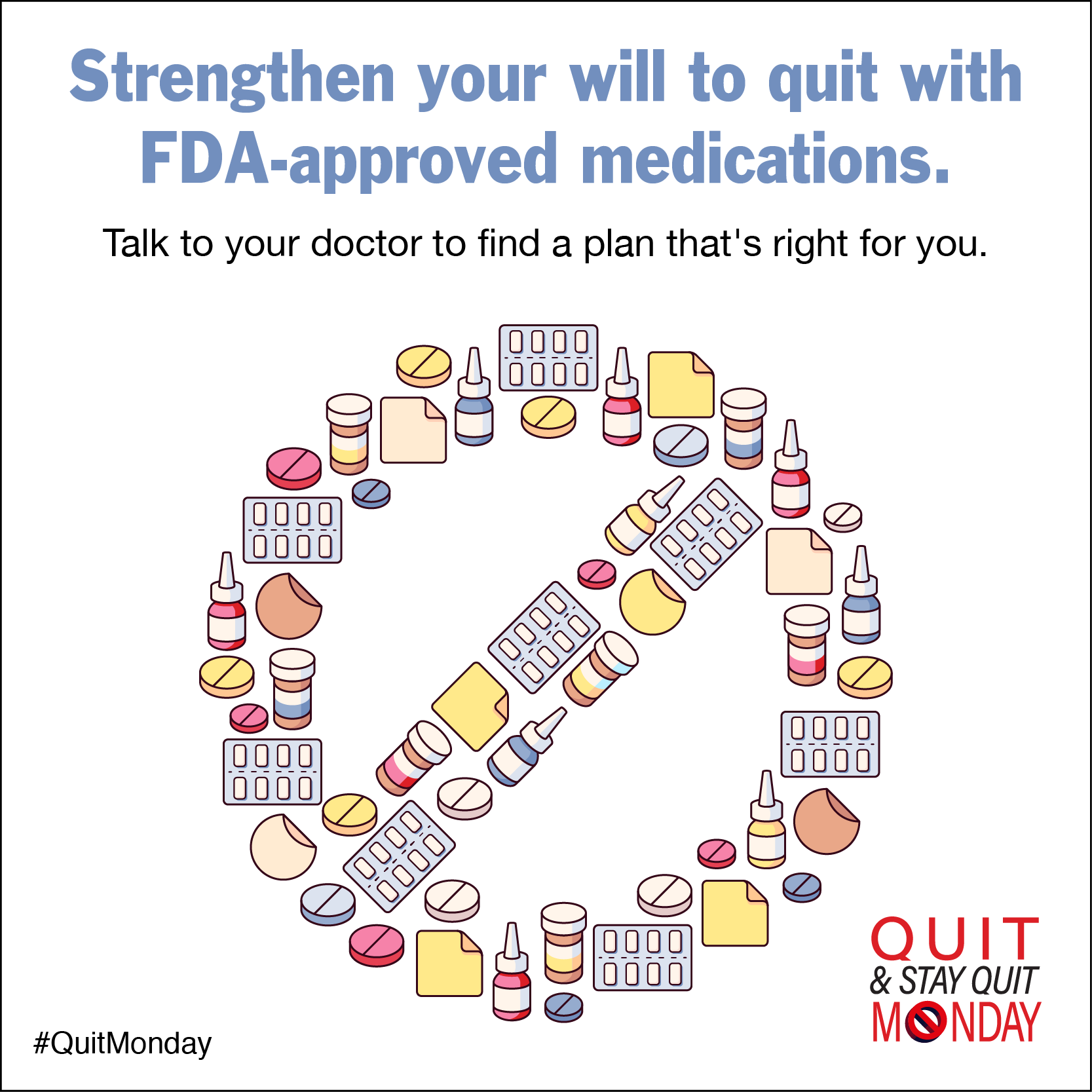How to Quit Smoking Using FDA-Approved Medications
To quit smoking is a tremendous undertaking, but with the right tools, mindset, and strategy, anyone can conquer the habit.
There are a number of ways you can set yourself up for a sustained quit. Finding a support group, enlisting a quit buddy, forming a quit plan, subscribing to text reminders, and identifying cravings and triggers are all ways to improve your chances of success, but these methods can be made more effective when paired with a Food and Drug Administration (FDA) approved medication.
What is an FDA-Approved Tobacco Cessation Medication?
FDA-approved medications for tobacco cessation are intended to help individuals quit smoking by either:
- Making the effects of nicotine less pleasurable
- Reducing the negative side-effects of nicotine withdrawal, which may include depression, insomnia, irritability, anxiety, or weight gain.
Tobacco cessation medications are regulated through the FDA’s Center for Drug Evaluation and Research, which ensures that the products are safe and effective, and that their benefits outweigh any known associated risks.
Types of Smoking Cessation Medications
Not all smoking cessation medications are the same. Currently, there are three main varieties approved by the FDA: nicotine replacement therapy (NRT), bupropion, and varenicline.
These three types of medication vary in how they affect the body, how they are used, and how long they should be used. Some are available over-the-counter, and others require a prescription from your doctor. Individuals should talk to their doctor to determine the best option.
Nicotine Replacement Therapy:
Nicotine Replacement Therapies (NRTs) help minimize withdrawal symptoms from tobacco cessation by providing the user with controlled doses of nicotine. Over time, dose levels decrease to gradually wean the user off nicotine. NRTs are sold over-the-counter as an adhesive skin patch (similar to a band aid), chewing gum, or lozenge to adults over age 18. NRTs are also available by prescription from a doctor as an oral inhaler or nasal spray. Whenever using over-the-counter NRTs, it’s essential to follow the instructions carefully (for example, nicotine gum is not as effective if chewed like regular a piece of regular gum), and to reach out to your doctor or healthcare provider if you have any questions.
Bupropion Hydrochloride (Zyban):
Bupropion hydrochloride (sold under the brand Zyban) is a non-nicotine prescription medication available in a tablet form. Because Zyban contains the same active ingredient as the antidepressant Wellbutrin (bupropion), the FDA encourages people who use Zyban—and those who are considering it—to talk to their health care providers about the risks of treatment with antidepressant medicines.
Varenicline Tartrate (Chantix)
Varenicline tartrate (sold under the brand Chantix) is another non-nicotine prescription medication. Chantix acts at sites in the brain affected by nicotine by reducing the rewarding effects of nicotine, essentially making cigarettes less enjoyable.
The Bottom Line:
Data shows that using an FDA-approved smoking cessation product doubles the likelihood of a successful quit. This Monday, talk with your doctor to find out if an FDA-approved medicine can fit into your quit strategy.
